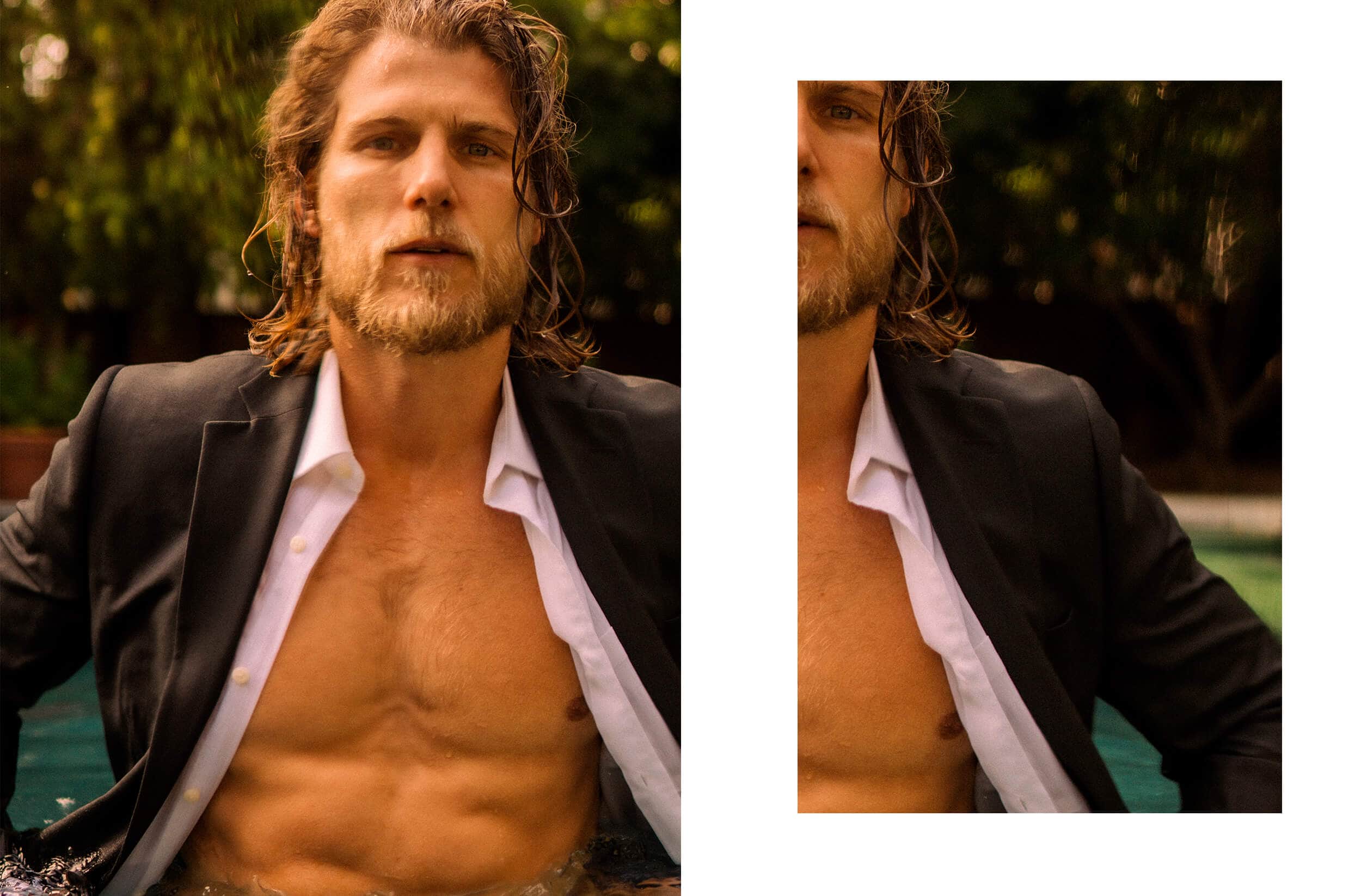An interview with Travis Van Winkle is way more than a basic sequence of questions and answers about jobs and life: it’s a deep analysis of the human soul and the situations in which our jobs and lives put us in our over-stressed world, inundated as it is with the urge of “knowing” and “fulfilling.” Travis, on the other hand, has found his “peace pockets,” his calm zones, and his own methods to achieve even the most ambitious goals.
Perfectly integrated into a big, new family, the “You” family, whose season 3 stars him as biohacker Cary, the “king of Madre Linda,” Travis feels a feeling of belonging to an even bigger family, a family of men and women in which equality reigns supreme, regardless of any genetic and social factor. A family he’s been daydreaming, as it still doesn’t exist in our world.
Through a chat about characters with no limits, intense physical preparations, yoga pauses, and hikes in nature, Travis offered us a beautiful insight into his life and work experience.
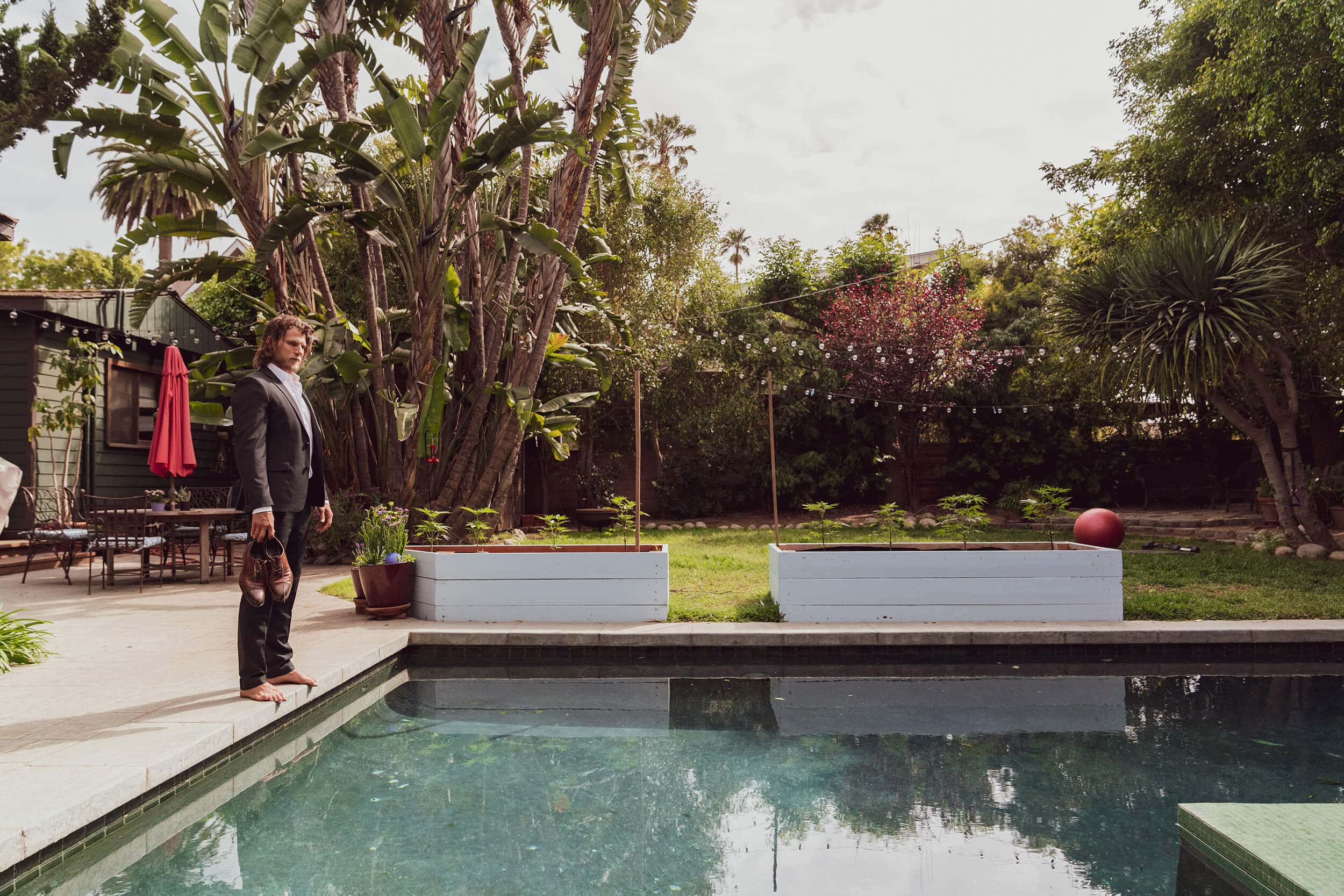
What’s your first cinema memory?
I know there must be one before this, but I remember sitting in a theater, watching “Titanic” with my mom and her friend, and I remember being so blown away by the scope of everything, by how big it was; I remember crying and not wanting my mom to see me cry, so, I was turning to the side and trying to hold in my tears and be really tough. I’d say that was a moment that really inspired me to want to be a part of something like that.
Speaking of “You” instead, you’re one of the newest additions to the family. In season 3, which has just come out, you play a character named Cary, a wealthy man who becomes friends with Joe. Who’s this guy, what role is he going to play in Joe’s new life in the Californian suburbs?
Cary is somebody who really wants to do good in the world, and he wants to teach everybody what he’s learned to work for himself. He has his methods of breaking through to people, reintroducing them to their core, central being. So, his mission with men is really clear: to reconnect them to that lost soul that’s inside. Cary is all the things: he’s a family man, a great husband, a father, he has a supplement company, he is a professional bio-hacker… The thing is, he’s a good salesman, but he’s not selling you anything, he is the product. So, when he invites Joe into his world, Joe is a fish out of the water, and Cary sees that this guy is repressed and needs to be a little bit shaken up; the irony behind their relationship is that Cary is trying to elicit the beast out of Joe, and Joe is trying everything he can to keep the beast inside of him because he knows what happens when that thing is unleashed. There’s a really fun dynamic between the two of us, I think you can expect a lot of surprises with Joe and Cary.
So, how does Cary fit in the whole storyline of the show, and what are the dynamics of his relationship with the other characters?
Well, it’s me and my wife, actually, Cary and Sherry Conrad, and we’re the king and queen of Madre Linda. We live in this perfect community, this perfect society, and Joe and Love are fresh meat, so we invite them into our inner circle and acquaint them with our style of life: Joe and Love start to really become friends with Sherry and Cary and a surprising relationship is born.
Throughout the season, you just get to watch this journey unfold and you think it’s going in one direction, but then… it’s not.
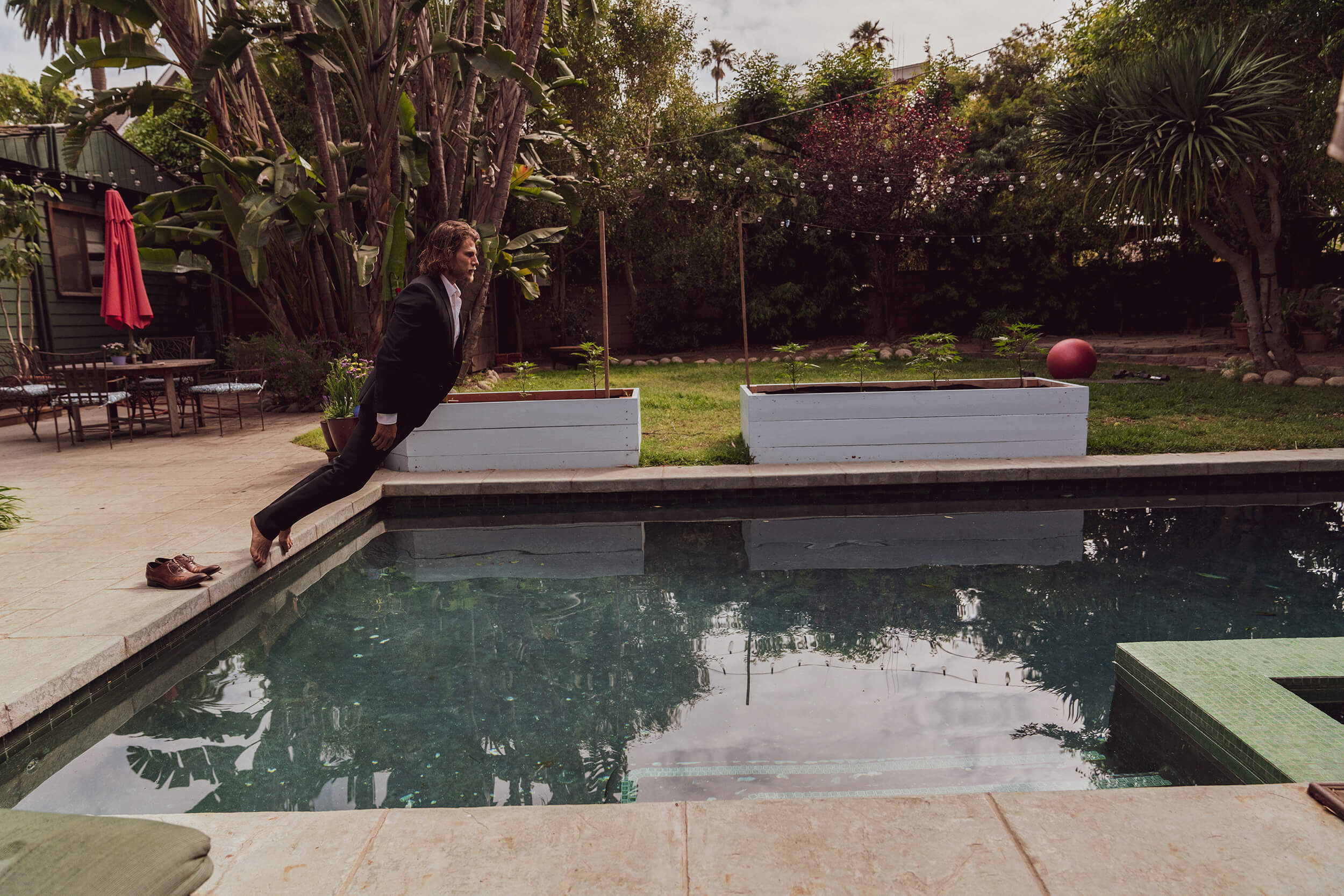
Were you a fan of the series, or the books, even before being cast in it? Or did you learn to love it on the go?
Before the role came in my way, I’d heard of the show, but I’d never seen it, and I’d never read the books, so, when the role came in my way, I binged the show and fell in love with it, and I realized that not only is it a wild, psychological thriller – it’s about obsession, murder, and really dark topics – but it’s also hilarious, and satire, it’s a commentary on all of us and everyone can relate to this, everyone can find a piece of themselves in this. I was gripped by this kind of storytelling and how compelling it is, and I got really excited that I was going to be a part of a show that has this kind of reach, and I think it tells stories in a way that really lands on the audience.
What was your first reaction when you read the script and the first question you asked the director/creators of the series?
One of the first things I asked was, “What is something that Cary doesn’t want people to know? What are Cary’s secrets?”. I also wanted to know about where he comes from: what is his background, what’s his relationship with his family dynamics? I wanted to find out what his origin story is. I was also very excited to play a character that seems to have no limits, so what I like about Cary is that he’s all about excellence: if excellence is on top of a mountain, he’s on a journey to reach it and nothing is stopping him. Some people might not like the guy because of everything he’s going for – he’s got strong opinions and usually he’s right, he’s been successful in his life and excellence is something that he’s going to get. I think that there’s something really fun about playing a character like that, where there’s no ceiling on the sky, so you don’t know how far he can go on. I can’t wait for you to see it, it’s going to be so much fun.
You worked with a personal trainer and altered your diet for this series: what was the preparation process like? How did you build your character?
My preparation was intense and I really believe that the physicality of the character informs so much, much more than just the posture of the character, I feel like it forms the thoughts and how the character feels. So, I decided I wanted to put on 10 pounds in muscle, and I hired Grant Roberts, who is an amazing nutritionist and trainer – he turned Kumail Nanjiani into a superhero for the movie he has coming out next month. My process was really intense, I had about two months to put on that 10 pounds, so we got a specific nutrition program: he gave me certain macros that I had to follow, which are your proteins, your fats, and your carbs; I had 240 grams of protein a day, 130 grams of fat, and 100 grams of carbs, 5 days out of the week and then, on the weekends, I would have my load meals, and I would eat pizza, burgers, chocolate, cake, and all those things, and I would store my body with all these carbs and then I would work out incredibly hard on Monday and Tuesday and push all that blood into whatever muscles I wanted to enhance, so there was this process of gaining muscle and also losing fat. The process was working out 5 days a week, cardio one day a week, I had one day off, and I was just incredibly strict with my nutrition, I didn’t miss a day of training, I didn’t mess up on my nutrition at all, I did anything Grant told me to do because it’s been proven that he knows what he’s talking about, so, I just said yes and I was an amazing student. I have my own gym in my garage, and I could really follow what he said; I didn’t have somebody there doing it for me, I really had to take initiative and be self-motivated, and I think that being on a big show like “You” is motivational enough because millions of people are going to see the show. However, more importantly, I wanted to feel like Cary and become Cary, and that was one of my avenues to do so.
“I wanted to feel like Cary and become Cary…”
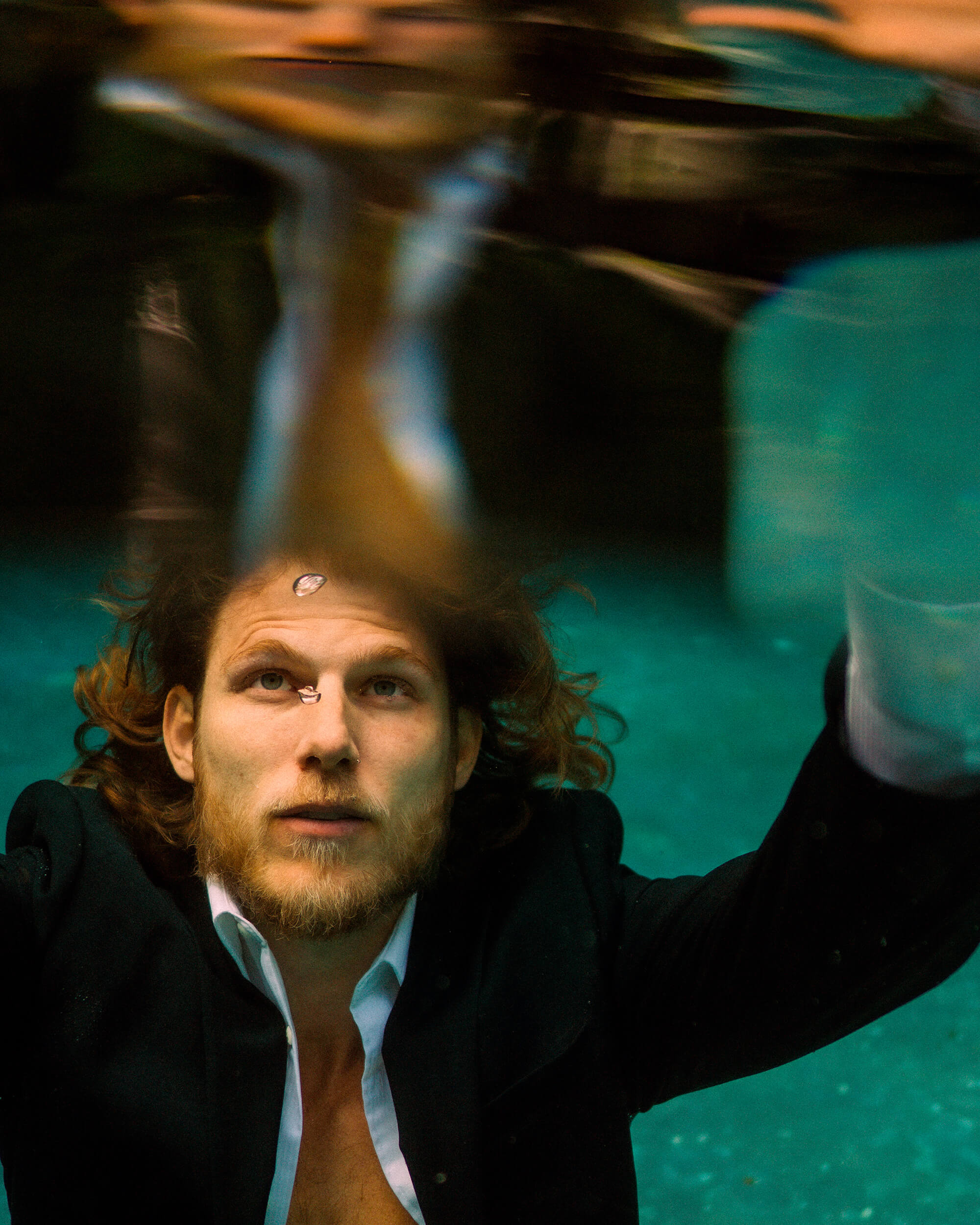
What is it that makes you say YES to a project?
Number one, I want to be excited about it. If I read something and I’ve got this feeling of excitement, or whether it’s a little bit of fear that gets me to think, “Is that stretching me?” or if there’s an excitement that makes me think, “I know this guy, I can blast this out of the water,” then it’s a yes. There’s usually a feeling that I get where I know if it’s something in alignment with me: a lot of times, things work synchronistically, and the project will fit into my specific history, or it’s something that I might be interested in. There’s always some kind of alignment that happens, but the timing of these roles is also important. There are a lot of factors that play into it, but I think that the feeling is like a crescendo that eventually makes me realize, “I want to do this! This is mine!” [laughs].
One of the big themes in “You” is the dangers of social media culture and the lack of privacy that social media imply: what’s your personal relationship with it, how has it affected your life? And what do you think is the right way we should use it?
That’s a deep question, and I think there’s a lot of factors involved… There’s a documentary on Netflix called “The Social Dilemma” that did a lot of research, scientifically, around the results of using social media regularly and the effects that it can have on your psychology, negatively. You find out that the creators of social media created this as a form of something we’d become addicted to, so it’s just like gambling, it’s like a drug, it’s supposed to elicit the same responses from our bodies. It’s really dangerous in one sense, but in another sense, it’s what allows us to reach each other globally, and I feel like I learn a lot through social media, a lot of my news comes from social media, it makes us stay in touch with people from around the world. Plus, social media can be helpful even when it comes to some service elements from my life – I work with BuildOn, a non-profit that’s all about building schools around the world, and I’m in the Big Brother program of Los Angeles, which is a program throughout America, a mentor program. So, you’re also able to share and inspire others through these platforms, which I think is really important and helpful.
My relationship with social media is a bit riddled and complicated because I know the implications that social media has, potentially, on my brain, shortening my attention span, being a distraction overall, taking away from the moment, from actually experiencing a moment because, a lot of times, why do you take a photo? Do you take a photo because it will be a cool Instagram shot, or do you take a photo because you want to capture a moment that you’re experiencing? I think we’re now being guided, unconsciously, to have experiences because it’s going to somehow be cool to show on social media. That’s not why we should experience things in life, that should not be a motivation to experience things in life! But I think it’s unconsciously beginning to have its grips on us. I have a kind of love-hate relationship with it: I think it’s helpful with business, it’s helpful to connect in real-time with fans, with people that have seen some of my work, and I think it’s also nice to be able to have a platform to express myself, whether it’s comedically or just for some things that I’m working on. It’s a very long answer, but I’m giving you the truth: sometimes I’m in a zone where I really love social media, and other times I find myself being a little too enamored with the feedback and the process of posting and being too entertained by it, and it distracts me from my life. So, I have to find a balance, and that balance is something that I have yet to find, but I’m constantly looking to it.
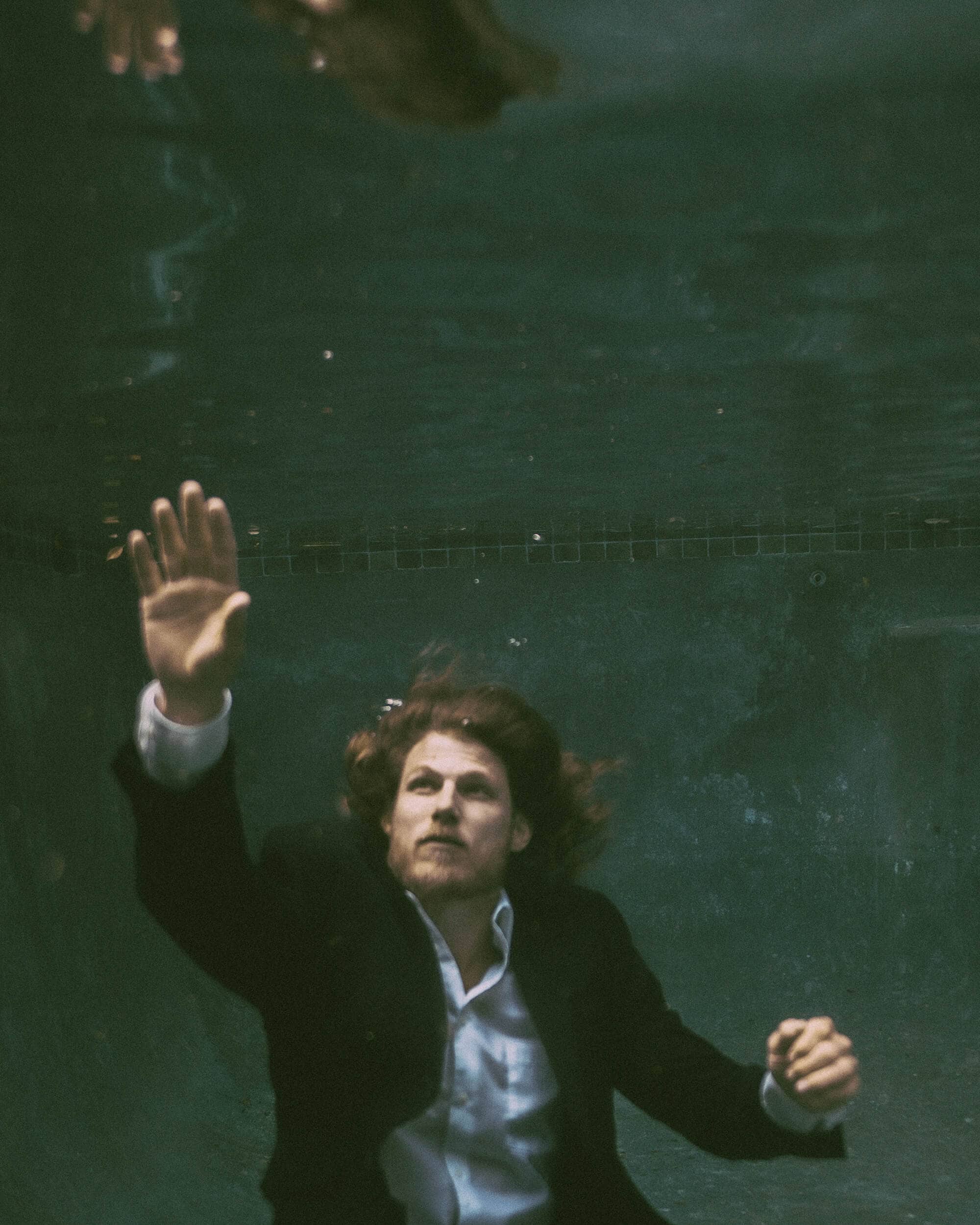
“I think we’re now being guided, unconsciously, to have experiences because it’s going to somehow be cool to show on social media.”
You’re a yoga-holic and own a yoga studio in LA: what is it that you love about it and how does it affect or improve your everyday life?
It’s a great question. Urban 728 is the yoga studio that a couple of friends of mine and I opened up 5 years ago, it’s a hot yoga studio, an amazing place, just north of Melrose and La Brea, if you’re in Los Angeles check it out.
I fell in love with yoga about 12 years ago and became a fanatic, and I’d never done yoga prior to that. In connecting your breath with movement, there’s a spiritual element to that that’s just naturally calming: it calms the nervous system, focuses your mind, and overall softens your heart; all the while, you’re also benefitting your body, you’re releasing toxins, you’re stretching, which is something that, as a culture, we don’t do that often, we’re always in cars, on chairs, on the couch. For me, it became something that felt like such a healthy component of my life that I became addicted to it. Sure, if you’re going to become addicted to things, make sure they’re things that you really benefit from, that aren’t hurting other people – yoga? Come on! [laughs] I became addicted to that, but I will say, over the last 4 years, I have not done it as much, I’ve really gotten into other things, like basketball, swimming in the ocean, paddle tennis, lifting more weights, hiking. I do yoga probably once a week and I think it’s really great to keep everything in alignment. So, I recommend it, I think it’s an incredibly spiritual practice, I also think it’s just practical for your health.
On that note, spirituality and health are very important to you: do you have a mantra or a routine that helps you deal with the fast pace of life and of your job?
I go to different pockets where my meditation practices are really strong, and I meditate twice a day, usually, 10-15 minutes in the morning, when I wake up and then, right before dinner time, I’ll do the same thing. After I meditate, I usually say some form of manifesting prayer, some good thoughts about some people that happen to be on my mind, and I love when I’m in that pocket. Other times, it’s different, right now, for example, I haven’t been in a meditating zone for a while, and I feel it, I feel like I really crave it and I miss it. So, for me, it comes in waves and I’ve learned to accept that over time. I think years ago I would have beaten myself up and had angry thoughts like, “Oh, I miss my meditation! Oh, I need to do this!”. But meditation is the exact opposite of that mentality, for me, it’s learning to really embrace the flow of everything. I would say meditation is an important element, it’s a practice to center and ground you every day in this world where we’re inundated with lights, technology, news, and all these different ideologies, wars, and conflicts.
It’s really important to find some time to check in and center yourself. That’s inspired me right now, I should probably go meditate after this call! [laughs]
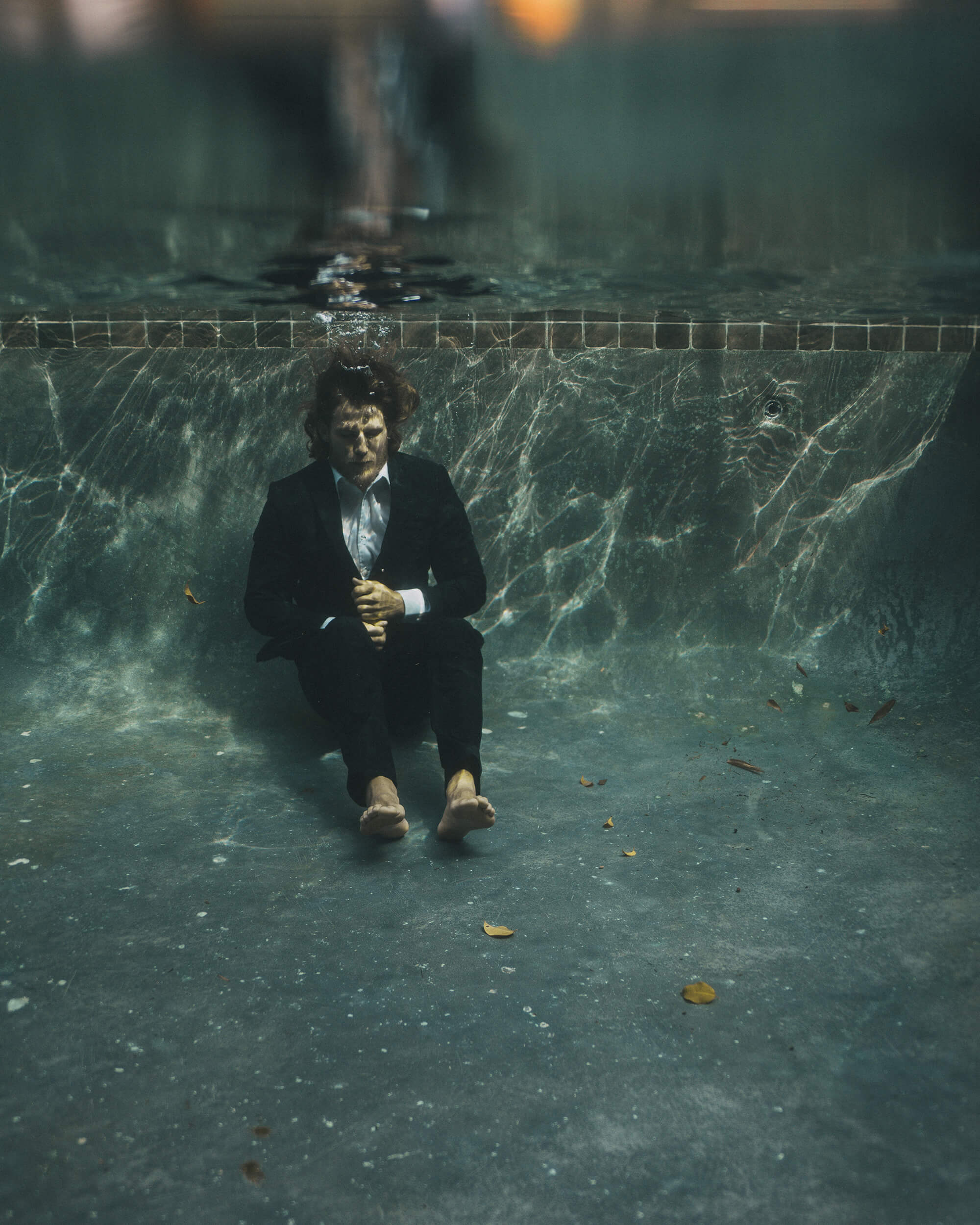
You mentioned the non-profit association BuildOn, and you’re a member of the board. On this note, what changes do you hope to see (and make yourself) in the world?
This is a hugely deep question! I’m a global ambassador for BuildOn, which is all about education and empowerment. They have an Out of School program in the United States for children usually a little below the poverty line or that have some trouble at home, so they have this outlet where they come and be of service to their community. BuildOn inspires them to be of service in whatever ways make sense to them, so they really get to take charge of how they want to shake their community and give back to their community. Once these children do that for so long and collect a number of service hours, BuildOn takes them across the world to go build a school with a very deserving community where education isn’t easily accessible, where there’s usually no running water, no electricity. So, these two worlds collide, it’s a beautiful cultural exchange where the kids from the United States learn about life in a whole new way, they learn the simplicity of joy, that you don’t have to have all the riches to be happy, it’s community and family that’s essential to survival. The kids in whatever country, whether it’s Nepal, Haiti, Nicaragua, Malawi, or Senegal, also get a view of what life is like for kids that are just like them but live across the planet. There’s this beautiful cultural exchange that happens, sharing of cultures, and the idea that education is something that can really break the cycles of poverty and illiteracy and low expectation. BuildOn is an amazing organization, they’re doing profound work, and they’ve built about 2000 schools now, I’ve been a part of 7 myself and I got my tentacles on probably 20/30 schools. So, if you’re interested in building a school, BuildOn is an amazing organization, check them out.
What changes would I like to see for the world? Maybe, just more equality all around, equality of every man, woman, regardless of your gender or how you identify, your sexual orientation, your skin color, your religion, your culture, the politics. Just equality, where everyone can see that we are all the same creatures, we are all pulled from the same cloth, we’re all family. So, I think that what I would like to see is more of an honoring of what already is; we’ve just been distracted with what society has placed upon us over time, throughout history, ego and patriarchy have really done a number on a lot of us, and I think it’s all about re-establishing equality: that’s a really important next step, and who knows if we ever get there, but I think that’s the goal.
“…we are all the same creatures, we are pulled from the same cloth, we’re all family.”
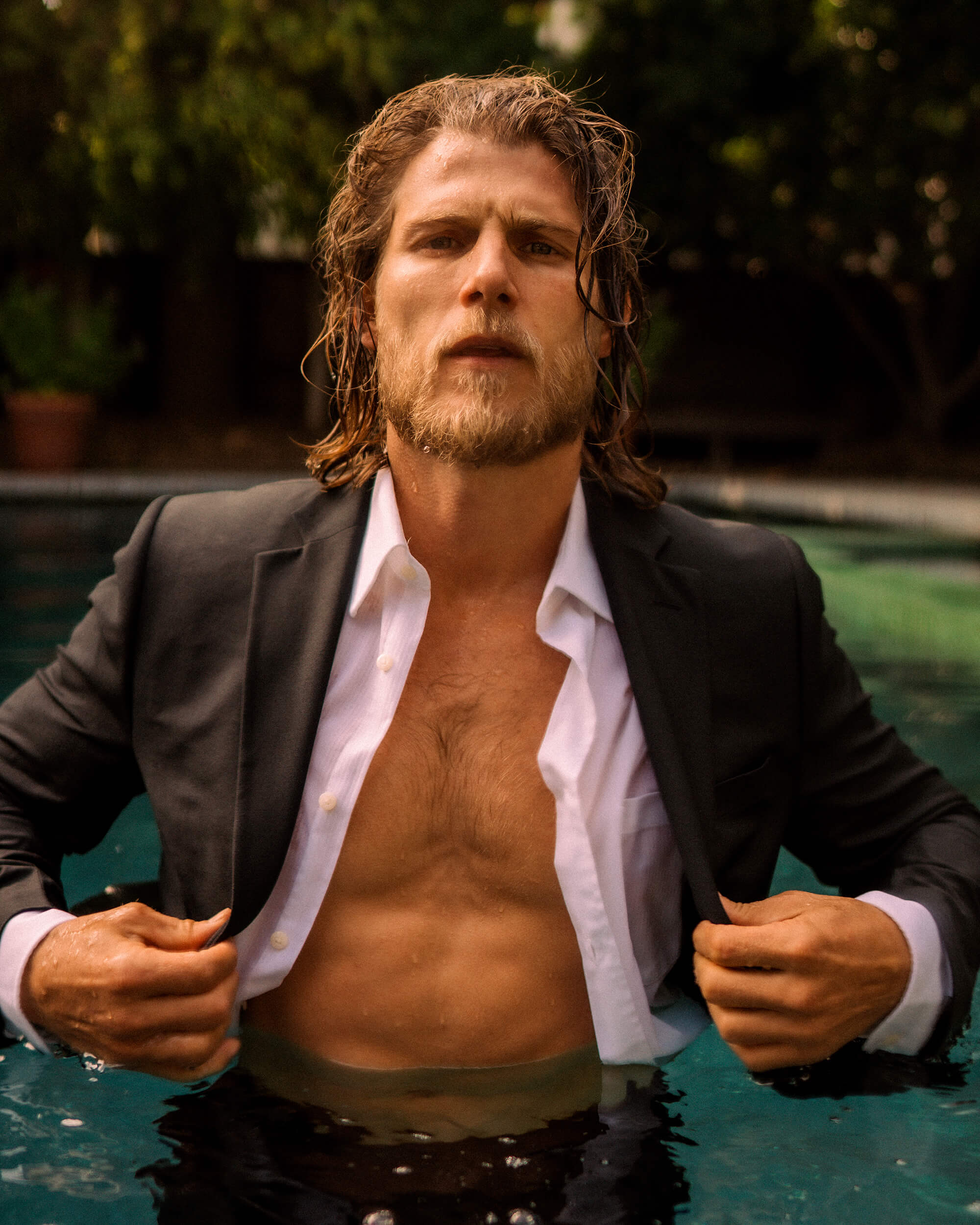
The latest thing you’ve discovered about yourself?
That I suck at remembering people’s birthdays! And all it takes is putting it into your phone as a reminder! That’s what I’ve learned, I want to be better at honoring those that I love on their special day.
If you need a day off, where do you go?
Nature. I would go to nature, whatever that is, whether it’s going to the beach, putting my feet in the sand, jumping into the ocean, going on an amazing hike, getting out to the forest, riding my bike… Get me to nature for a recharge, nature will always reflect to us what we need to see, it’s our greatest mentor and teacher, a reminder of this perfection that I think is inspiring.
Have you ever had an epic fail on the job?
Yes! I’ve had many epic fails on the jobs! I remember it was my first guest star that I’d ever done, probably in 2004, for “That’s So Raven.” It’s a sitcom, so you have a rehearsal process where you do a table read, you put it up on its feet, and then the producers come and watch it; you do the same thing for a couple of days and then you tape the lives. In the process of these rehearsals, the director came to me after one of them, she pulled me aside and said, “Let’s have a conversation,” and I said, “Okay,” so she sat me down and said, “You’re not doing great, I need you to be better, so let’s work on this, okay?”. [laughs] It was one of those moments where it felt so nice that someone stood up for me – I’m sure I was nervous, it was my first job, I was still learning how to freaking act! [laughs] – and also gave it to me straight and told me that I was not doing great; it inspired me to tighten up and buckle down, get to work, and ask for help and be okay with getting and receiving help because I think in our society it’s shameful if you have to ask for help, we have to do all on our own, and that was not the case. For me, my failure in this regard was a great lesson.
I believe our failures are great lessons for us if you choose to look at them in that way.
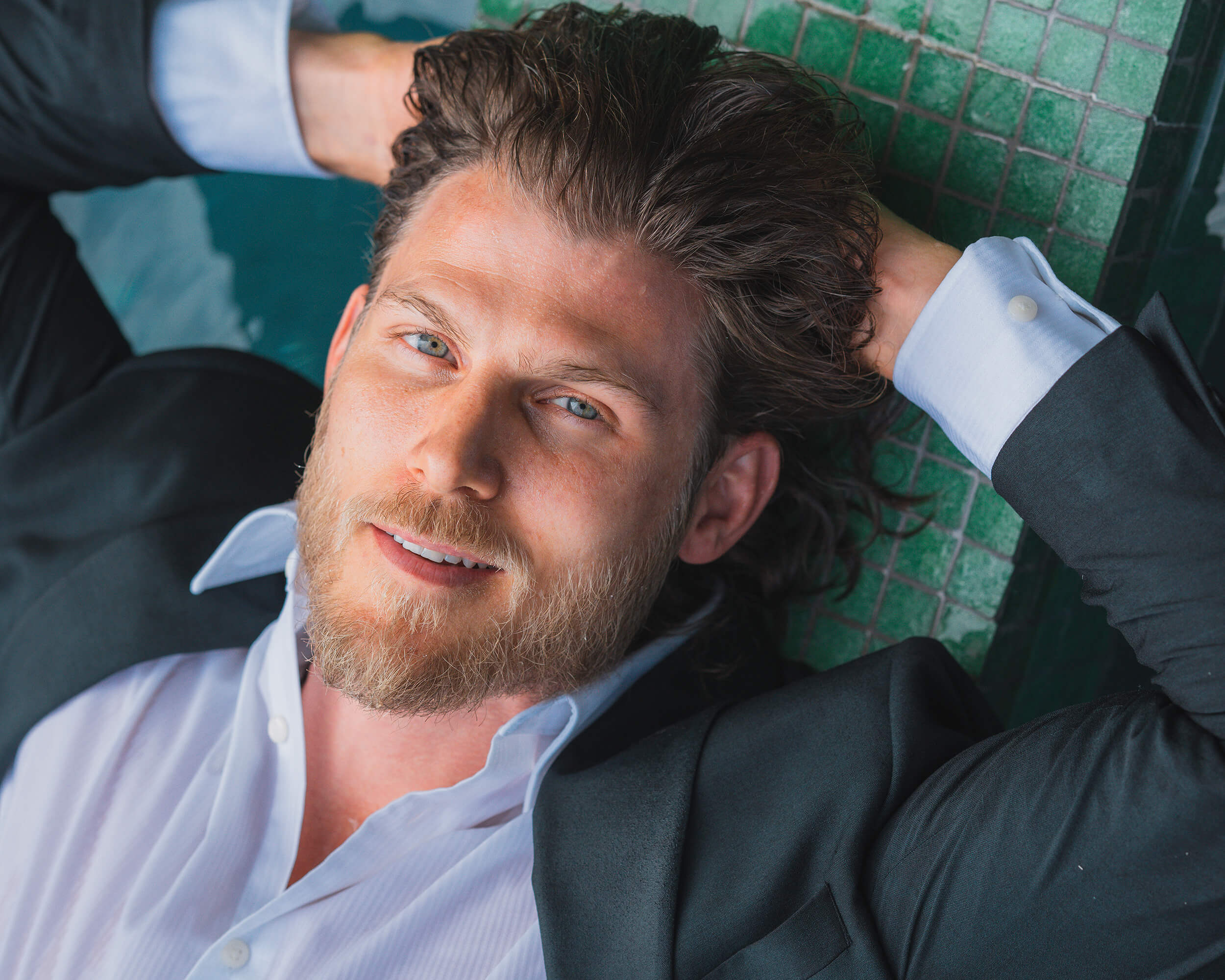
What’s your must-have on set?
My dog.
What does it mean to you to feel comfortable in your own skin?
I think it’s a sort of neutrality: in life, a lot of stuff is coming at you and you can be reactive to certain things, you can react to your environment a lot, so, I think it’s maintaining a neutral stance. There’s something peaceful about that. I’m not always great at that, but it sounds and can be a really great space for peace.
What are you afraid of?
I think we all have this potentiality inside of us, everyone’s potential is different: I guess my biggest fear would not be having that potential realized.
What’s your happy place?
Swimming in the ocean with my dog.

